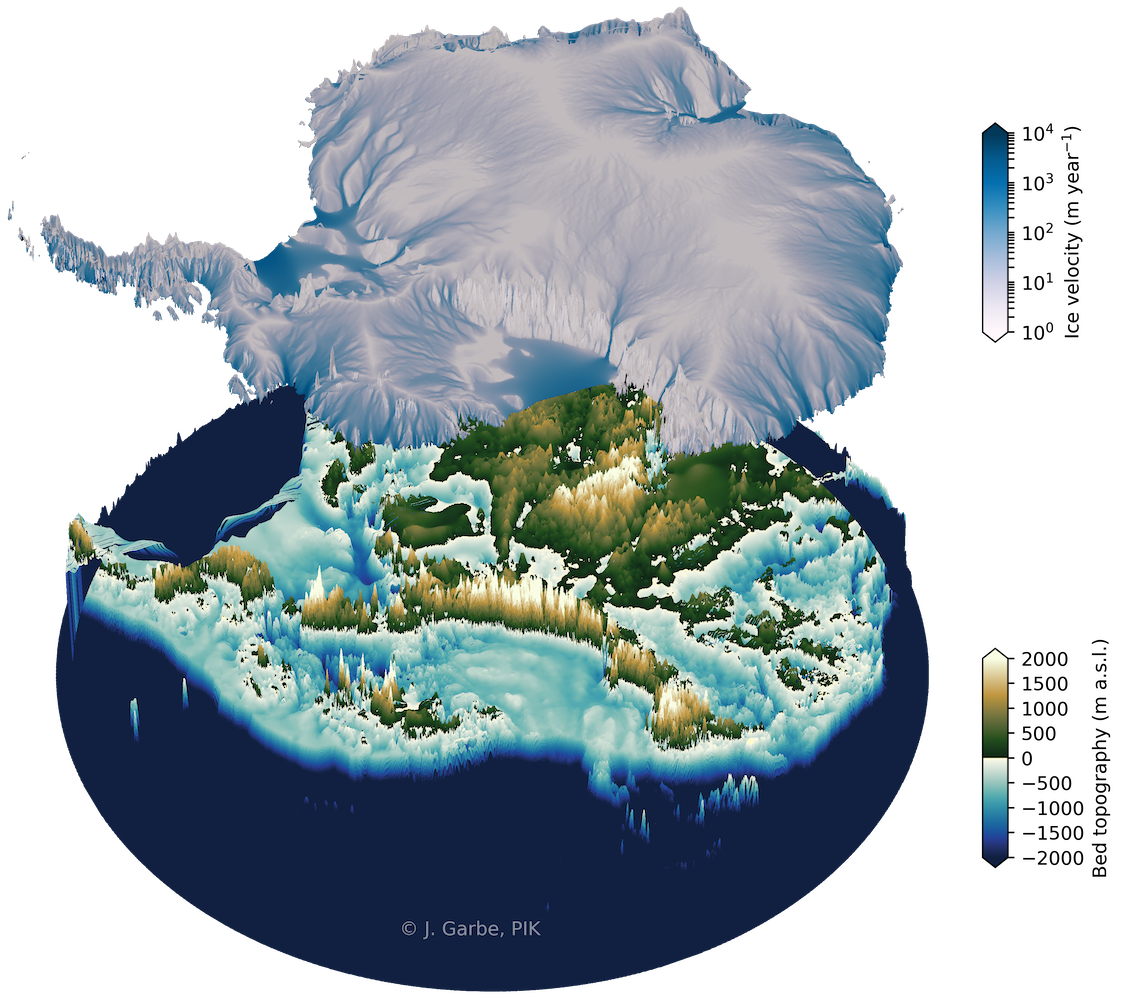Research Interests
- Numerical ice sheet modeling ( co-development of PISM)
- Antarctic Ice Sheet stability and future sea-level rise ( e.g., Hill et al., 2023; Reese et al., 2023; Bauer et al., 2023)
- Tipping points and hysteresis behavior of the Antarctic Ice Sheet ( e.g., Garbe et al., 2020; Winkelmann et al., 2026; Chandler et al., 2025)
- Surface melting in Antarctica ( Garbe et al., 2023)
- Climate and socio-economic tipping interactions ( DominoES)
- Earth system resilience ( ERSU)
Ph.D. Project
My research focuses on the long-term stability and critical thresholds, or “tipping points”, of the Antarctic Ice Sheet, as well as their implications for future sea-level rise under global warming. In particular, I focus on how the stability of the Antarctic Ice Sheet is influenced by interacting tipping elements within the Earth’s climate system, such as the Greenland Ice Sheet and the Atlantic Meridional Overturning Circulation (AMOC). The goal of my Ph.D. project is to determine whether interactions between the Greenland and Antarctic ice sheets increase the likelihood that a tipping of the Greenland Ice Sheet amplifies the tipping potential of the Antarctic Ice Sheet.

To get a better idea of my research focus, watch this short introduction video about the TiPACCs project on tipping points in Antarctic climate components, in which I am involved:
Models
Parallel Ice Sheet Model (PISM)
For my research, I mainly use and co-develop the Parallel Ice Sheet Model (PISM). PISM is an open-source, high-resolution computer model used to simulate the flow of ice sheets and glaciers, which is adopted as a scientific tool by many research groups around the globe. PISM is jointly developed at the University of Alaska, Fairbanks (UAF) and the Potsdam Institute for Climate Impact Research (PIK).

Modeling Sandbox
Want to play around with some simple ice-sheet models yourself? Check out this Github repository!